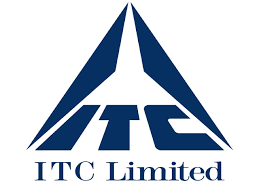CAN P3 APPROACH Bolster VEGETABLE SUPPLY CHAIN?
The Centre is planning to set up vegetable production clusters near major cities to increase production and supply chains. The clusters will be developed in partnership with the private sector, Farmer Producer Societies (FPS), and cooperative bodies. The goal is to have consumers buy vegetables from retail shops and vending trucks in their locality. The clusters will be set up in a radius of 50 km from cities like New Delhi, Mumbai, Chennai, Kolkata, Bengaluru and Hyderabad. The scheme will provide support for: Implementing agencies, decentralised cold storage facilities, Procurement of vending trucks and vans, Fruit and vegetable processing, and setting up kiosks and retail outlets in residential areas. The government will also promote Farmer Producer Organisations (FPOs), cooperatives, and startups for vegetable supply chains. The government can facilitate the establishment of these clusters by providing infrastructure support, budgetary allocations, and subsidies to farmers for adopting modern technologies and sustainable practices. These subsidies can help farmers invest in advanced equipment, irrigation systems, and post-harvest solutions that are otherwise cost-prohibitive. These initiatives will go a long way in setting up vegetable production clusters across the country.
The production of vegetables in India is envisaged to be around 205.80 million tonne, according to the Third Advance Estimates of 2023-24 released by the Department of Agriculture and Farmers’ Welfare in September 2024. Increase is expected in production of tomato, cabbage, cauliflower, tapioca, bottle gourd, pumpkin, carrot, cucumber, bitter gourd, parwal and okra, whereas, decrease in production is envisaged in potato, onion, brinjal, elephant foot yam, capsicum, and other vegetables.
Uttar Pradesh is the top vegetable producing state in India, accounting for 14.8 per cent of the country’s total vegetable production in 2022. Other top vegetable producing states include West Bengal and Madhya Pradesh. The National Vegetable Initiative for Urban Clusters initiative aims to improve vegetable production and productivity through capacity building, technology dissemination and value chain development. Bihar announced the plan to develop large-scale clusters in 20 districts to promote vegetable supply chains.
Currently, a significant portion of vegetable cultivation is done on small, fragmented farms, which leads to inefficiencies in distribution, post-harvest losses, and market price volatility. Large-scale production can address these challenges by enabling economies of scale, optimising resource use, and standardising quality. Additionally, it allows for better integration of technology in farming practices, such as precision agriculture and climate-smart solutions, which further enhance productivity and sustainability. The private sector can contribute by bringing in technological innovations. A cluster-based approach encourages localised production hubs with integrated cold chain logistics, processing units, and advanced storage facilities, all of which reduce post-harvest losses.
The private sector can contribute significantly to the development of vegetable production clusters. They can invest in cold chain infrastructure and logistics, which are crucial for preserving the quality of perishable vegetables. Private companies can bring in technology for farm management, traceability and quality assurance, enhancing the overall efficiency of the supply chain. They can provide market linkages and offtake guarantees, ensuring a steady demand for the product. Additionally, the private sector can offer extension services and training to farmers, improving their skills and knowledge.
The post-harvest losses of vegetables in India range from nearly 5-12 per cent. Developing vegetable clusters that are closer to key consumption centres can contribute to reduction is post-harvest losses by reducing the time taken for the vegetables to reach the market which can benefit not only the farmers who have a greater quantity of vegetables to sell but also the consumers, according to a study conducted by NABARD Consultancy Services in 2022.
The creation of vegetable production clusters provides help to farmers to aggregate large volumes of vegetable produce in few locations FPOs and cooperatives can act as collection centres which enable buyers to deal with a small number of entities compared to many small farmers. This market linkage not only helps develop price efficiencies but also helps contribute to enhanced incomes for small farmers.
Also, the development of storage infrastructure like cold storage and warehouses by FPOs, startups, and other stakeholders under the vegetable cluster can reduce post-harvest losses. Creation of storage facilities at farm gates will provide the facility to farmers to sell their produce when market rates are remunerative. Thus, the overall reduction in post-harvest losses can help reduce prices.
The development of vegetable production clusters can contribute to increasing farmer incomes and make farming more viable. However, the success of these clusters depends on addressing operational issues in the vegetable supply chain and securing financial support from government and private players.
Developing large-scale vegetable production has the potential to revolutionise the vegetable supply chain in India by creating a more consistent and reliable supply of produce. Currently, a significant portion of vegetable production is done on small, fragmented farms, which leads to inefficiencies in distribution, post-harvest losses, and market price volatility. Large-scale production can address these challenges by enabling economies of scale, optimising resource use, and standardising quality.
Additionally, it allows for better integration of technology in farming practices, such as precision agriculture and climate-smart solutions, which further enhance productivity and sustainability. Ultimately, large-scale production can improve the availability of vegetables year-round, stabilise prices for both farmers and consumers and reduce wastage across the supply chain. To make the vegetable supply chain more robust, the focus should be on expanding cold storage infrastructure, particularly in rural production hubs, where a wider variety of vegetables can be stored under ideal conditions. The introduction of decentralised, off-grid storage solutions like solar-powered cold rooms.
To read more click on:https://agrospectrumindia.com/e-magazine
The Centre is planning to set up


